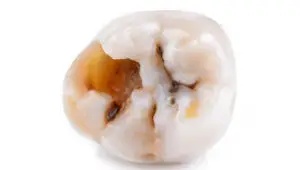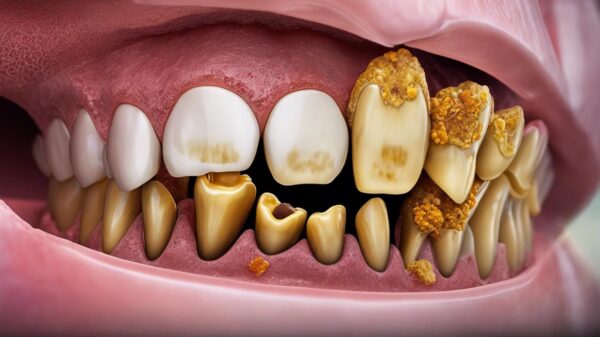Most Common Causes of Toothaches
If you’ve ever had a toothache, you know how awful they can be. Tooth and oral pain can be some of the worst pain you can experience, because there’s often not much you can do to help ease it. Worse than the pain, is the unknown of what’s causing it. I’ve collected information on the top 9 causes of toothaches and what you can do to get rid of the pain. Keep reading to find out more.
What are the top 9 causes of toothaches? Tooth pain can vary from severe to dull and can resolve itself, or get worse over time. While determining the cause of the pain is not always easy, there are a few common reasons for your toothache that are easy to diagnose.
9 common causes of toothaches include:
- Tooth Decay
- Cavity
- Teeth Grinding
- Tooth Abscess
- Cracked Tooth
- Tooth Eruption
- Infected Gums
- Sensitive Teeth
- Sinus Infections
If you have a toothache that persists for more than a few days, you should not ignore it. Though they don’t always lead to a big issue, they can get worse if left untreated. Be sure to contact your dentist to see what the problem is and get it fixed.
Tooth Decay
Oral health is extremely important because it not only affects your teeth and mouth, but it can also impact your overall health. Tooth decay is when holes develop in the hard surface of the tooth. Pain from tooth decay can be either a dull ache or a sharp pain, depending on the level of decay.
If tooth decay goes untreated, it can lead to an abscess, which we’ll talk about later, and lead to even bigger, riskier problems. What leads to tooth decay? When bacteria in your mouth makes acids that attack the enamel, or hard shell, on your teeth. This is why brushing your teeth is important – it helps keep the bacterial growth in your mouth under control.
 Cavities
Cavities
A cavity is what results from advanced tooth decay. Holes develop on the hard surface of your teeth when acids from the bacteria in your mouth erode a tooth’s enamel.
Cavities are common in young kids as a result of poor oral health – lack of brushing and flossing.
Eating sugary and acidic foods can also lead to cavities. Depending on how far along the decay is, your tooth sensitivity and pain will likely be more advanced. Bad breath or a bad taste in your mouth, facial swelling, and tooth sensitivity can all be signs that you may have a cavity. If you think you could have one, you should go to the dentist as soon as possible, before it gets worse.
Teeth Grinding
Teeth grinding is an act that typically occurs during sleep and the individual doing the grinding, likely won’t even know they do it. Over time, grinding can cause headaches, jaw pain, earaches, broken and chipped teeth, and toothaches.
When you grind your teeth, there could be many reasons why. It could mean that you’re under a lot of stress, or it could speak to a sleep disorder. Treatment options for teeth grinding may include wearing a mouthguard at night that prevents you from rubbing your teeth together, and can lessen the stress on your teeth.
Another option, depending on the severity of the grinding, could include you taking a muscle relaxer before bed.
Best Custom Dental Night Guard/Mouth Guard for Protection Against Teeth Grinding/Clenching/Bruxism and TMJ
Tooth Abscess
A tooth abscess is a pocket of pus that occurs because of a bacterial infection. There are different types of abscesses that can occur in different areas of the tooth. The infection is usually caused by an untreated cavity, an injury, or even prior dental work.
The treatment for a tooth abscess will include draining it to get rid of the infection, followed by a root canal treatment. In some cases, the tooth may need to be pulled. Infections caused by an abscess can, at times, lead to extremely serious, life-threatening complications – so pulling the tooth may be the best and safest option.
Cracked Tooth
Even though your teeth are extremely strong, they can still suffer cracks. The likely cause of a cracked tooth will be from an injury, but sometimes, regular wear and tear can create a chip to the tooth. When you have a cracked tooth, it can be difficult to discover the location.
In order to save the tooth, you should not wait to have it treated. What may start out as limited pain can lead to extreme discomfort and the inability to treat if ignored for too long. Many cracked and broken teeth can be fixed and function as normal if they are treated in a timely manner.
 Tooth Eruption
Tooth Eruption
Tooth eruption, or new tooth growth (often associated with wisdom teeth) is very common. Toothache caused by tooth eruption is more common for children and young adults, and is not typical for older adults, unless they still have their wisdom teeth.
In rare cases, wisdom teeth do not cause any issues; however, they can be more susceptible to tooth decay and gum disease and will often be removed in order to prevent future issues. Most people will have their wisdom teeth removed between the ages of 16 and 19.
Infected Gums
According to the dental experts at Dental Associates of Hampton Cove, improper dental hygiene that leaves food and plaque trapped in your teeth and gums can lead to infections, which can cause toothaches. If gum disease and infections go untreated, they can lead to receding gums, extreme tooth decay, loss of teeth, and even the forced removal of teeth.
You can tell if you have an infection if your gums appear red or swollen, if they bleed when you brush your teeth, if your teeth become loose, pain when chewing, and more. Sometimes, people won’t realize they have gum disease because it is possible to have it without showing any symptoms. But, if you do experience any of the mentioned symptoms, go get checked immediately.
Sensitive Teeth
Some people have naturally sensitive teeth, not caused by any other issues. But, sometimes, sensitive teeth can be a sign of other issues. Hot or cold food and drink, sweet or sour foods, whitening products, erosion of tooth enamel, and gum disease can all be causes of sensitive teeth.
If you experience sensitivity, start taking note of when it hurts and avoid eating certain foods. If the pain persists, it may be a sign of other problems like gum disease or cracked/broken teeth. Tooth decay can also lead to the exposure of nerves within your tooth, which will appear through sensitivity to certain temperatures and foods.
Sinus Infections
The sinuses are empty spaces in your skull that are connected to the nasal cavity. When you get sick and those spaces become inflamed, you will likely experience tooth pain in the back, upper part of your jaw. Roots of the upper teeth are located, and may even extend into the sinus cavity which causes the pain in nearby teeth.
In the same way, infections in your teeth located near the upper back part of your mouth can lead to chronic sinusitis. Your dentist will run tests to determine if sinusitis is the cause of your mouth pain, and then will find the right solution for you and your overall health.
Home Remedies for Toothaches
Though certain tooth pain will need professional help from your dentist, there are some home remedies you can try to help relieve some of your pain.
Try some of the following methods and see if your toothache fades:
- Avoid hot/cold foods and drinks to reduce sensitivity
- Eat soft food for a period to see if the pain fades
- Use a mouthguard at night to protect your teeth and limit any grinding
- Use a tooth-numbing agent like Orajel
- Apply a cold press to the affected area to ease inflammation
While these home remedies can help manage some of the pain from a toothache, it is important that you check with your dentist. Just like other health issues, small pains here and there, if left untreated, can lead to much bigger issues down the road.
Call the Dentist
It is well known that many people have a fear of the dentist, for a variety of reasons. Many times TV shows and movies will depict characters avoiding going to the dentist to have a sore tooth looked at – do not do this! Tooth pain can be some of the worst you can experience, and the longer you let it persist, the worse it will get and the more invasive the treatment will become.













